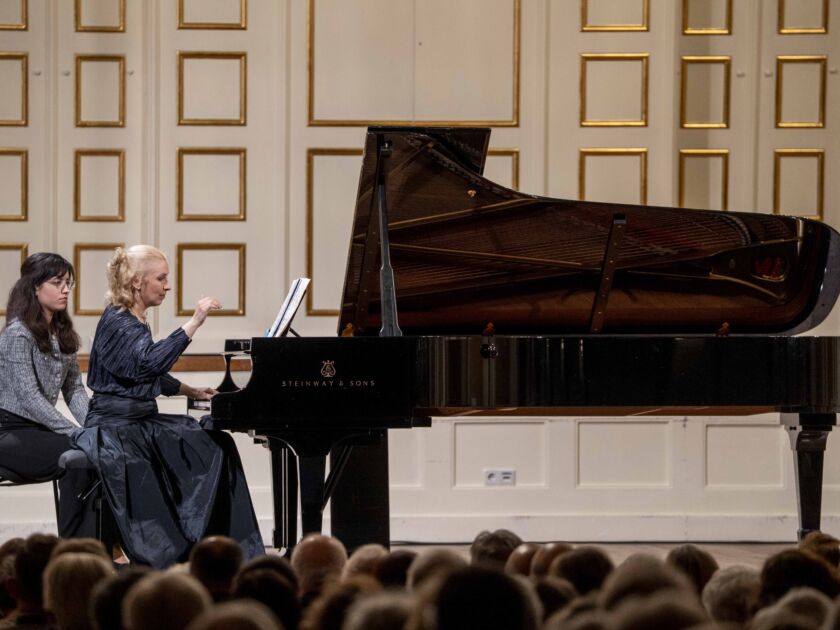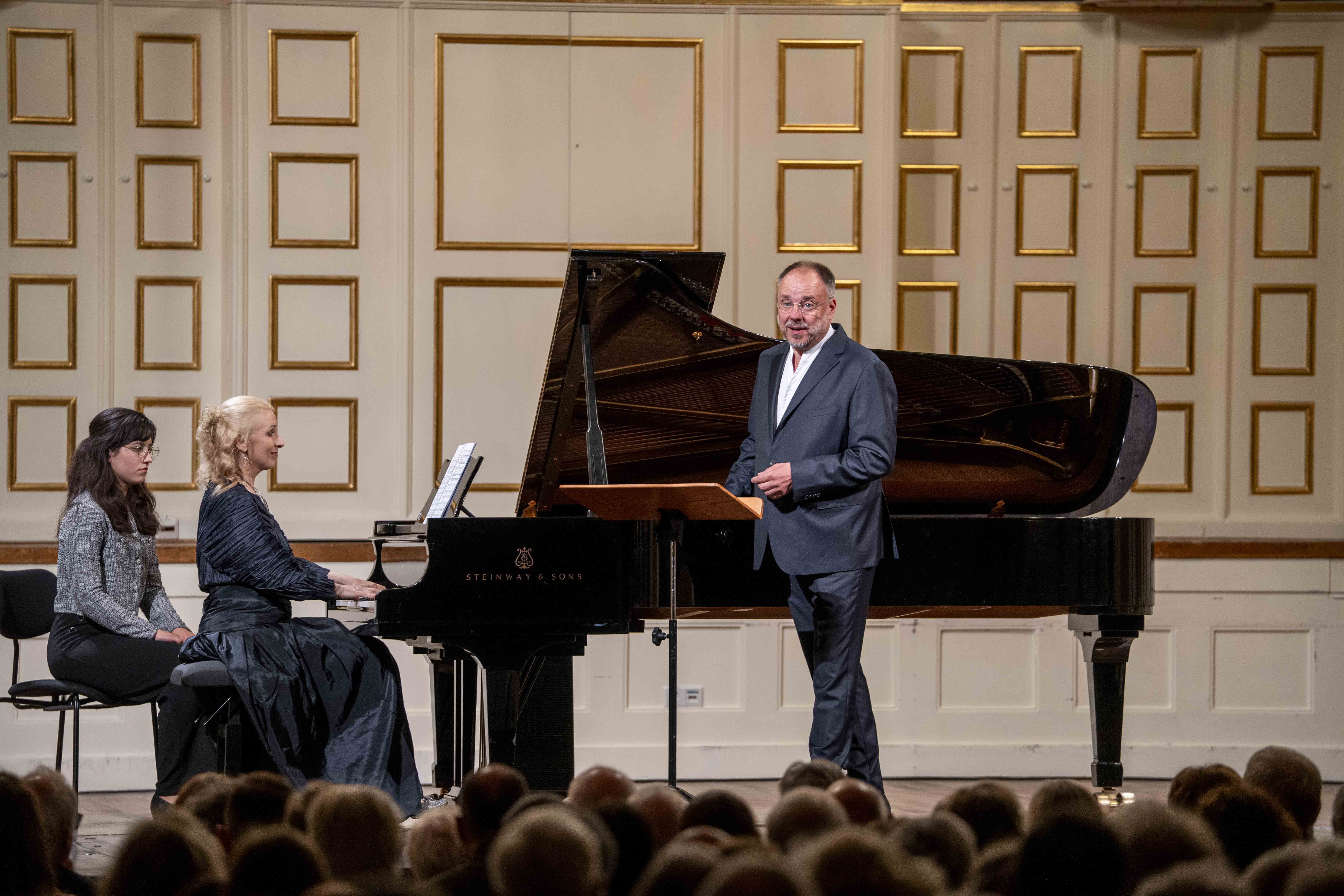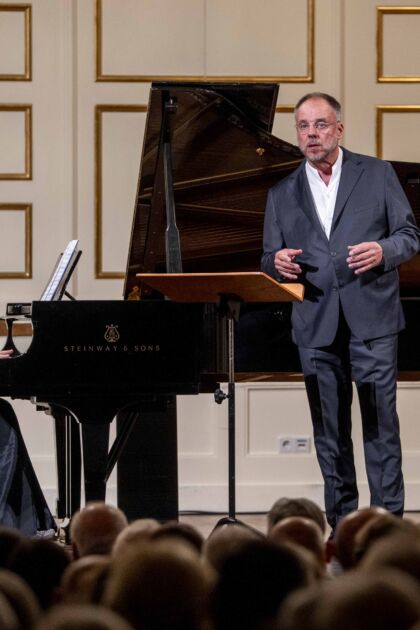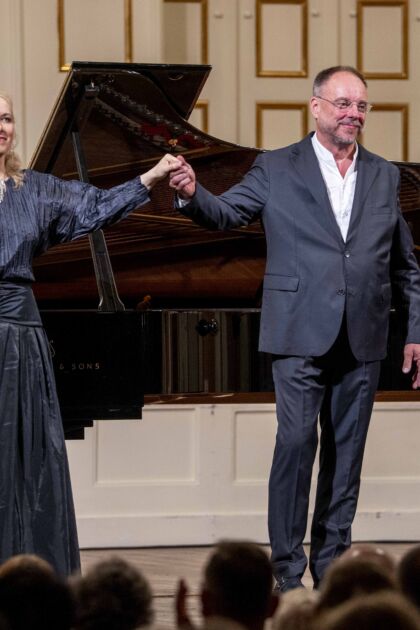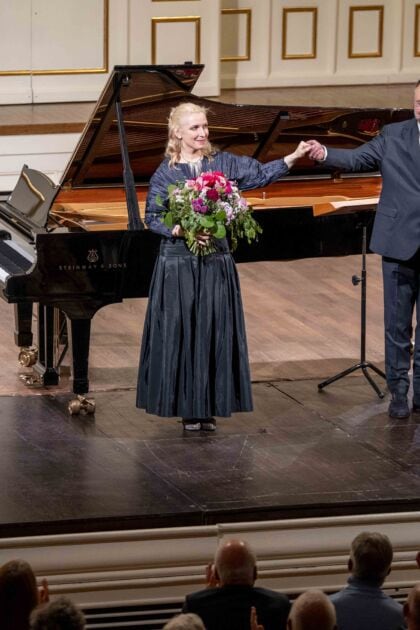- Due to acute tendonitis in his hand, Markus Hinterhäuser has had to withdraw from performing in the Whitsun matinee (9 June 2025). The Salzburg Festival is extremely grateful to Tamara Stefanovich for agreeing to take on unchanged this challenging programme, in which she will not only perform works by Alban Berg, Franz Liszt and Salvatore Sciarrino, and Wagner's Wesendonck Lieder with Matthias Goerne, but also Luigi Nono's …..sofferte onde serene…, which gives this concert its title and which she has learnt at short notice.
.....SOFFERTE ONDE SERENE...
Venice’s unique aura and at times mysterious character stirred up a deep longing among artists in the 19th century. Composers from the North who championed the aesthetic ideals of Romanticism and late Romanticism were particularly ‘susceptible’ to Venice’s influence — not least Richard Wagner, who died in Venice in 1883, and his father-in-law Franz Liszt. Just weeks before Wagner’s death, they performed a final concert together at the city’s Teatro La Fenice.
For Luigi Nono, the son-in-law of Arnold Schoenberg and a native Venetian, the ambient sounds of the lagoon fed into his musical development. His hometown was a place that continually inspired him and even shaped his musical language, through which he gave particular artistic expression to the ever-present sight and sound of the lapping sea. Since 1930, the Biennale Musica has provided a high-profile international platform for the music of the 20th and 21st centuries in Venice. Nono’s works have been performed there, along with those of his Italian colleagues Bruno Maderna, Luciano Berio, Salvatore Sciarrino and others.

